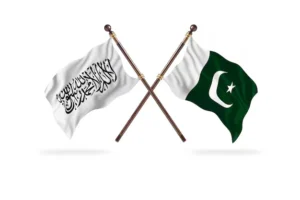“To live like a lion for a day is far better than to live for a hundred years like a jackal.”
This was the creed of the man known as the Tiger of Mysore, Tipu Sultan. In the late 18th century, as the British East India Company (EIC) cast its shadow across the subcontinent, one kingdom stood as the final, formidable obstacle: Mysore. At its helm was Tipu Sultan, a ruler who was not just a warrior but an innovator, a modernizer, and a man whose legacy remains one of the most fiercely debated in Indian history. His life was not a quiet reign; it was a 30-year storm of warfare, invention, and relentless resistance against the world’s rising colonial power.
Born in 1751, Tipu was the son of Hyder Ali, the brilliant military commander who had built Mysore’s might. From his youth, Tipu was groomed for both war and governance. While he studied Islamic law and science, his practical education came from French military officers who taught him the latest European tactics.
He was not a distant prince. He fought alongside his father in the First Anglo-Mysore War and, in the second, personally inflicted one of the most “humbling defeats” the British had ever suffered in India, forcing them to sign the 1784 Treaty of Mangalore and return all captured territory. When he officially took the throne in 1782, the British hoped for a weaker, less decisive ruler. They got Tipu Sultan instead.
Tipu Sultan was different. He was fascinated by technology and understood that European power came from innovation. He launched a wave of reforms, building new roads, creating a new currency, and personally founding the Mysore silk industry that thrives to this day. But his most famous contribution was military. He pioneered the world’s first iron-cased rockets.
These “Mysorean rockets” were not crude fireworks; they were weapons of terror that could travel over a kilometer, panicking British troops and their horses. The British were so astonished by this technology that after his defeat, they studied his rockets, which directly inspired the Congreve rockets used in the Napoleonic Wars.
The Final Days of Tipu Sultan
The Tiger’s success, however, made him the EIC’s primary target. The British, led by generals who would later become famous for fighting Napoleon, were determined to remove him. In the Third Anglo-Mysore War, Tipu was cornered. The 1792 Treaty of Seringapatam was a deep humiliation: he lost half his kingdom and was forced to surrender two of his young sons as hostages to the British.
For the next seven years, Tipu Sultan prepared for the final battle. It came in 1799. The British, now allied with the Marathas and the Nizam, besieged his capital, Seringapatam, with a combined force of over 60,000. They offered him a treaty that would make him a puppet ruler, a “satrap” living on their terms. It was then that he gave his famous reply about the lion and the jackal. On May 4, 1799, as British forces breached the city walls, Tipu Sultan did not surrender. He grabbed his sword, rushed to the fight, and was killed defending his capital. He died a warrior-king, not a subordinate.
His Legacy
The story of Tipu Sultan did not end with his death. To this day, he remains a symbol of fierce debate. For many, he is one of India’s first and greatest freedom fighters, a hero who died for his motherland’s sovereignty. Yet, others revile him as a tyrant, citing accounts of forced conversions and the destruction of temples in territories he conquered, like Coorg and Malabar.
Historians, however, offer a more complex picture. Many of the most brutal stories were amplified by British authors to justify their conquest and vilify their most formidable enemy as a “fanatic”. This narrative is contradicted by evidence of Tipu Sultan giving generous grants to 156 Hindu temples, including the main Sringeri temple, which he personally helped restore after a Maratha raid. His actions were often political, not purely religious, the pragmatic and at times harsh methods of an 18th-century king fighting for his kingdom’s survival.
Today, Tipu Sultan remains a living presence in India’s culture. He is a man who can be lionized or vilified, but never ignored. He was the innovator who pioneered modern rocketry and the warrior who chose a lion’s day over a jackal’s life.
Also Read: Omar al-Mukhtar: The Desert Scholar Who Defied an Empire for Twenty Years








